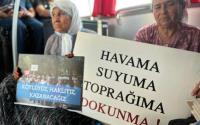Published on Wednesday, September 15, 2004 by Knight-RidderJonathan S. Landay and Warren P. Strobel
The U.S. strategy to create a stable, democratic Iraq is in danger of failing, current and former U.S. officials say, and the anti-American insurgency is growing larger, more sophisticated and more violent.
A wave of brazen attacks across Iraq has included the deadliest single bombing in Baghdad in six months on Tuesday and at least seven bombings in the capital on Sunday.
The violence increasingly appears to threaten nationwide elections planned for January, which are key to President Bush's hopes for reducing the number of U.S. troops, now 140,000, and making a graceful exit from Iraq.
Many experts on Iraq say the best that can be hoped for now is continued chaos that falls short of a civil war."The overall prospects ... are for a violent political future," said Jeffrey White, a former senior Defense Intelligence Agency analyst.
Top Bush administration officials publicly acknowledge that the insurgency is getting worse. But they point out that they predicted it would do that as Iraq's January elections approached.
The officials insist that the elections will go ahead. And, they say, the United States has no choice but to persevere as it builds up Iraq's own security forces to maintain order.
"Over time, you will see it being brought under control," Secretary of State Colin Powell said of the insurgency in a Sunday television interview. "We said at the time of turnover (of power to interim Prime Minister Iyad Allawi's government) that this is the time of maximum danger as the insurgents come after us."
One senior administration official deeply engaged in Iraq policy said the new U.S. Embassy in Baghdad, the huge Central Intelligence Agency station there and the U.S. military command are working together far better than they previously did and collecting much better and more refined information on the insurgency. However, the official said, the recent improvements may not be enough to overcome setbacks caused by mistakes that date back to inadequate prewar planning.
"We've finally got our act together, but it's probably too late," said the official, who spoke only on the condition of anonymity because he's more pessimistic than the administration's official line on Iraq.
The insurgency, meanwhile, has gained strength.
White, the former DIA analyst, who's now at the Washington Institute for Near East Policy, said his conservative estimate is that there are some 100,000 Iraqis involved in the Sunni insurgency, including fighters, messengers and people who provide logistical, housing and other assistance. He discounted estimates by senior U.S. military commanders that the Sunni resistance numbers about 5,000 fighters.
Bush and Allawi face a series of unpleasant choices in the crucial weeks ahead.
They can continue escalating attacks against rebel-held cities in the so-called "Sunni triangle" and against followers of militant Shiite cleric Muqtada al-Sadr. But that's almost certain to bring more civilian casualties and more anger at the United States and Allawi's unelected government.
Or they can press forward with elections in Iraq's relatively stable areas, which are predominantly Shiite and Kurdish. But that risks bringing to power an overtly religious Shiite government likely to be rejected by Iraq's Kurdish and Sunni Muslim minorities.
In tacit recognition of the ugly realities, the Bush administration on Tuesday announced that it's asking Congress to shift almost $3.5 billion from Iraqi reconstruction projects to improve security.
The funds would be used to train more Iraqi police and security forces, boost oil production, reduce Iraq's debt and prepare for the elections. The money would come from funds earmarked for the reconstruction of water, sewage and electricity services, although officials said there would be sufficient amounts left to continue those efforts.
"The security situation presents the most serious obstacle to reconstruction and economic and political development in Iraq," said Undersecretary of State Marc Grossman. A reassessment team led by U.S. Ambassador John Negroponte "faced hard choices, but they decided that without a significant reallocation of resources to the security and law enforcement sector, the short-term stability of Iraq would be compromised and the longer-term prospects for a free and democratic Iraq undermined."
Rep. David Obey, D-Wis., said he was skeptical that shifting funds would help.
"I think Congress is being asked to put a Band-Aid on a bleeding wound," he said.
In Baghdad, Allawi, who faces growing popular discontent because of the security situation, promised citizens Monday that his government has a security plan and said the situation will improve as quickly as October. He hasn't offered a specific plan but insisted Iraq will hold elections for an interim assembly in January.
But counterinsurgency specialists say the Bush administration appears to be caught in a trap that's afflicted many foreign occupiers in centuries past: Too little military force allows rebels to flourish, but too much causes a popular backlash and increases grass-roots support for the insurgents.
"This is the classic contradiction of counterinsurgency," said Steven Metz of the Army War College in Carlisle Barracks, Pa. "In the long term, winning the people matters more. But it may be that in the short term, you have to forego that in order to crush the insurgents. Right now, we are trying to decide whether we have reached that point.
"In Vietnam, we waited too long. When we did make that decision in 1970, it was too late."
Metz, of the war college's Strategic Studies Institute, said the spike in the insurgency may be temporary, and that it's too early to determine whether the insurgency will succeed in derailing the U.S.-led efforts to build a stable, democratic Iraq.
But others are far less optimistic.
"We are in a no-win situation," said a former senior U.S. intelligence official who's spent time in Iraq but spoke on condition of anonymity.
"I just don't see where we are headed. I think it's getting worse. I don't think we can hold the elections. If we do, we are going to hand the country over to the Shi'ia religious parties. The secular Shi'ias are not properly organized yet," he said.
This former official and other analysts suspect that, if Bush wins a second term in November, he may be forced to reassess and agree to postpone the Iraqi elections.
The White House, which faces a challenge from Democratic presidential nominee John Kerry on Iraq, has given no hint of this and insists it's sticking to the plan.
For now, the U.S. strategy is to try to retake Sunni-dominated cities such as Fallujah that are under insurgents' control and act as bases for attacks on U.S. forces and the Iraqis who support them.
To do that, U.S. military commanders have resorted to increasing use of air power, ordering strikes against the rebels that have occasionally hit civilian targets - including an ambulance that was struck in Fallujah on Monday, according to Iraqi hospital officials.
"Our strategy for the next several months, our political and military strategy will be to recover each of these places and put them firmly back under civilian control, under the control of the Iraqi interim government so that elections can be held," Powell said in the TV interview.
But Powell has declined in recent days to give a flat assurance that the elections will go forward in every city across Iraq.
The elections also are threatened by delays in getting election workers and additional security forces for polling places to Iraq.
The United Nations has declined to increase its staff in Iraq beyond a few dozen because of the violence. Secretary-General Kofi Annan's top Iraq envoy, Ashran Qazi, warned the Security Council this week that the lack of security in Iraq is halting progress on all fronts, including electoral assistance.
Members of Iraq's Independent Electoral Commission concede that security concerns have permeated their planning, affecting everything from recruiting workers at local election centers to convincing voters they won't necessarily be killed for casting a vote.
They say they likely will have to hire 70,000 people to carry out the elections at a time when people who work in the new government are killed and threatened every day.
Farid Ayar, a member of the eight-person commission and its spokesman, said it's not prepared to talk about what happens if parts of the nation are too dangerous to hold an election.
Our "campaign is directed toward the Iraqis, asking them to forget the past because the elections are for their future," he said. "Our goal is to make the Iraqi people understand freedom."
The linchpin to the U.S. strategy is the training and equipping of Iraqi security forces to take increasing responsibility.
Secretary of Defense Donald H. Rumsfeld said Tuesday that the effort was making "good progress," with 105,000 Iraqi security forces now trained and equipped, and another 50,000 due to complete the process by the end of the year.
White, the former defense intelligence official, said the spreading insurrections have forced the interim Iraqi regime and U.S.-led coalition onto the offensive before the fledgling Iraqi security forces were ready.
"They can patrol. They can arrest people," he said. "Can they conduct offensive operations against the insurgents? That's at least months away, if not years away."
Knight Ridder Newspapers correspondent Nancy A. Youssef in Baghdad contributed to this report.






